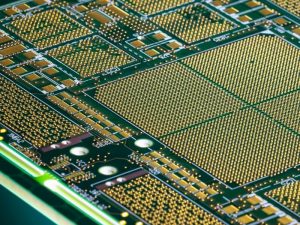Electronic equipment and quarantine. Where does old electronics go?
Due to quarantine restrictions, the collection and recycling of household electrical and electronic equipment in Lithuania has clearly decreased. The same trends are observed in other European Union countries. Waste managers urge residents to sort and not dispose of old electronics in household waste containers, as hazardous substances in landfills that end up in landfills pollute the environment and do not conserve natural resources.
 The fact that the population contributes less electronic waste is also noticeable in other European Union countries. In Ireland, for example, the recycling of electronic waste fell by 7% in January this year compared to the same month last year, although by 2020, a tenth more of this waste was collected and recycled in local government centers than in 2019. It is believed that the reduction in electronic waste disposed of this year may have been due in part to the restriction imposed by the COVID-19 pandemic on population travel of more than five kilometers. There are now fears in Ireland that the progress made last year could be lost.
The fact that the population contributes less electronic waste is also noticeable in other European Union countries. In Ireland, for example, the recycling of electronic waste fell by 7% in January this year compared to the same month last year, although by 2020, a tenth more of this waste was collected and recycled in local government centers than in 2019. It is believed that the reduction in electronic waste disposed of this year may have been due in part to the restriction imposed by the COVID-19 pandemic on population travel of more than five kilometers. There are now fears in Ireland that the progress made last year could be lost.
According to the organization of electronics manufacturers and importers, there would be no trouble if the residents of Lithuania and other countries accumulated electronic waste at home temporarily and took proper care of the waste after the restrictions on quarantine were lifted.
According to the organization of electronics manufacturers and importers, Lithuania, like other EU countries, would need greater involvement of the population in the transition to a circular economy, the aim of which is to be more sustainable in terms of natural resources.
 Moreover, EU Member States have electronic waste collection tasks. This year, 65% of our country needs to be tidied up and recycled. all household electrical and electronic equipment placed on the Lithuanian market and 45 percent. waste portable batteries and accumulators placed on the market separately. In addition, the European Commission is proposing that the target for portable batteries and accumulators placed on the market separately should increase annually from 2022 to 65% by 2025 and 70% by 2030. Electronic waste recycling means that 85%. the valuable raw materials contained in these products, such as plastic, glass and metals, can be reused. Electronic waste is probably the fastest growing waste stream in the world, so such a high amount of raw materials recycled during recycling is a great incentive to sort waste. Recycling electronic products saves natural resources and does not pollute the environment. As you know, electronics contain rare minerals and precious metals and dangerous substances like lead or mercury. Electronic devices that end up in landfills are harmful to the environment, as hazardous substances in them can penetrate the ground and groundwater.
Moreover, EU Member States have electronic waste collection tasks. This year, 65% of our country needs to be tidied up and recycled. all household electrical and electronic equipment placed on the Lithuanian market and 45 percent. waste portable batteries and accumulators placed on the market separately. In addition, the European Commission is proposing that the target for portable batteries and accumulators placed on the market separately should increase annually from 2022 to 65% by 2025 and 70% by 2030. Electronic waste recycling means that 85%. the valuable raw materials contained in these products, such as plastic, glass and metals, can be reused. Electronic waste is probably the fastest growing waste stream in the world, so such a high amount of raw materials recycled during recycling is a great incentive to sort waste. Recycling electronic products saves natural resources and does not pollute the environment. As you know, electronics contain rare minerals and precious metals and dangerous substances like lead or mercury. Electronic devices that end up in landfills are harmful to the environment, as hazardous substances in them can penetrate the ground and groundwater.


